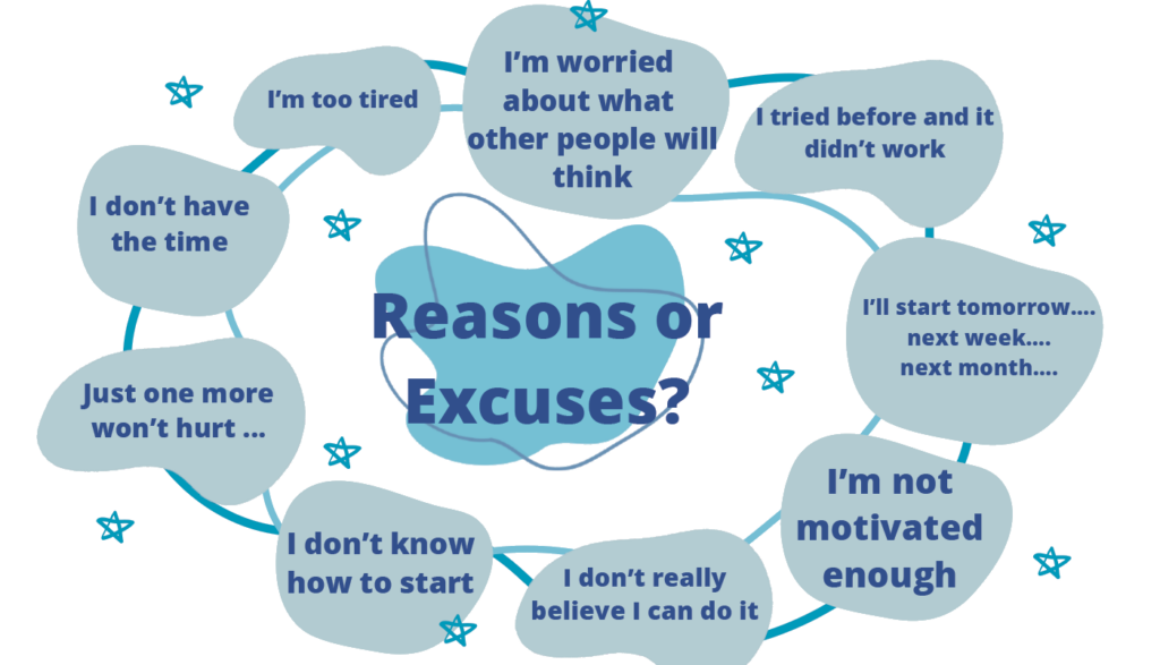
Coaching




Great Testimonials From Residential Guests

Krissy – Dec 2023
I felt so lost and so confused, couldn’t really think or see clearly how to move forward in my life. Ruth was able to see clearly what would help me move forward and by the end of the retreat l could see it too clearly. I feel so much calmer and relaxed and excited about my future again. I loved Ruth’s cooking and loved the accommodation. Ruth’s has a great sense of humour, mind set and wonderful personality. A great 3 days. Wonderful experience.

Nicola – Oct 2023
This weekend was, without doubt, a pivotal turning point for me. I could feel my strength and resilience returning, during my time with Ruth. However, perhaps the greater gift was the sustained changes I felt in the weeks/ months to come. The focused work undertaken one-to-one allowed me to address a deep-rooted mindset, one of lacking self-confidence and direction. The tailored support really helped me to unpack the narrative behind my thoughts and behaviours in recent years. While the process was emotional and challenging at times, Ruth was exceptional in creating a safe and nurturing space that enabled me to delve deeper and gain a far greater understanding of myself than I have ever achieved previously (via other forms of self-development, such as counseling). Ruth was able to ask perceptive and thought-provoking questions, yet this was always done in a way that made me feel empowered, never judged. This opportunity afforded me the tools to challenge my own thinking and the awareness to modify my behaviours and actions. Altogether, making me feel a sense of control and ownership that I haven’t felt for a long time. These are the sustained feelings that have really allowed me to make positive changes in my life, since this weekend, and have become more engrained in my daily life. The place I am in now would not have been possible without the foundation I was able to build during my weekend with Ruth. Since my visit, I have continued to feel supported in my successes and growth. I would thoroughly recommend this coaching weekend.

Striking the Perfect Chord: The Benefits of Work-Life Balance
By Kimberly Hayes on behalf of Nohona Coaching
Achieving a work-life balance is not just a lofty ideal; it’s a crucial aspect of our lives that underpins our overall well-being and productivity. From enhancing the quality of work to reducing the risk of burnout and promoting personal development, maintaining this equilibrium is integral for a fulfilling life. This guide from Nohona Coaching can help you strike that balance.
Enhanced Performance
A balanced approach to life and work fosters an environment where quality thrives. We can approach tasks with a fresh and relaxed mindset by ensuring sufficient time for rest and recreation. This rejuvenation often leads to enhanced creativity, better decision-making, and fewer errors, as opposed to the diminished output that results from constant work without adequate rest. Furthermore, this balance enables us to harness our full potential, leading to improved work efficiency and productivity. It also cultivates a healthier work environment, fostering positive relationships and teamwork.
Less Likely to Burnout
Burnout, a state of chronic physical and emotional exhaustion, often looms over those constantly under stress from overwork. However, balancing professional and personal life can effectively keep burnout at bay. It allows us the necessary respite to unwind, recharge, and return to work with renewed vigor. Additionally, achieving this equilibrium boosts morale, reduces anxiety, and promotes a more positive outlook on work. It’s a proactive approach to mental health that benefits both the individual and the organization.
Locked on and Focused
With work-life balance comes the gift of improved concentration. When our minds are not incessantly plagued by work-related concerns, we can fully engage with the task at hand. This heightened focus, a result of an effective work-life balance, paves the way for enhanced performance in all spheres of life. Moreover, this increased focus can also lead to faster completion of tasks and improved problem-solving skills. It’s a testament to the power of a balanced lifestyle in boosting cognitive functions.
Navigating Remote Work
The line between work and life often gets blurred for remote workers, making it even more essential to maintain a balance. Embracing the flexibility that remote work offers can be a game-changer. It allows structuring the day around peak productive periods and leaves room for family activities, hobbies, or self-care. Creating a dedicated workspace helps mentally distinguish work time from personal time while setting boundaries ensures work doesn’t seep into personal time. Furthermore, these practices help maintain professionalism and discipline while working from home, ensuring that productivity levels remain high.
Mastering the Art of Time
Stellar time management skills underpin an effective work-life balance. By meticulously organizing and prioritizing tasks, we can ensure that work and personal activities receive attention. This balance reduces stress and increases satisfaction, leading to a more fulfilling life. Moreover, good time management can lead to increased career opportunities and job satisfaction. It allows us to meet deadlines efficiently, manage workload effectively, and achieve our goals.
Self-Improvement
One of the less-discussed yet significant benefits of work-life balance is the opportunity for personal development. The balance affords us free time to pursue hobbies, learn new skills, exercise, or simply spend quality time with loved ones. These activities enrich our lives, boost mental health, and contribute to happiness. In addition, taking the time to focus on personal growth can lead to increased self-confidence and self-esteem. It allows us to reflect, grow, and strive towards becoming the best version of ourselves.
Balancing work and personal life is vital for overall well-being. It boosts performance, wards off burnout, and enhances focus. It’s crucial for effective remote work and time management and opens doors for personal growth. Thouhttps://www.nohonacoaching.org/contact-transformational-coach/gh achieving this balance takes effort, the benefits make it worthwhile. After all, it’s not just about improving work or personal life but enhancing the quality of our entire lives.
Work-life balance is one of the biggest areas that Nohona Coaching works with clients on. To find out more or book a free no-obligation Introductory Session – please contact us.

Excuses – How To Stop Making Them Part 2
The first step towards improving your life and getting rid of the awful habit of making excuses all the time is by acknowledging that you are, in fact, doing this to yourself. Start noticing when you are doing it. The more aware you become that you are doing it, the greater the chance that you can change this habit.
Let’s look realistically at some more commonly used excuses and what you can do to start changing the way you think about them:
Define your vision – what do you really want?
Examine what it is that you really want. Create a really strong image in your head, see yourself there, really think it, feel it and believe it. Writing it down, or having a little poster somewhere in your house can help or a little mantra that you repeat to yourself. When you feel an excuse coming upon you, bring up this vision and make it win the battle.
Have clear goals
When you start doing something, you need to have a clear goal. That goal has to bring you some kind of satisfaction upon reaching it, thus motivating you to put the work in. When you have the proper goals, make sure you find the proper motivation as well, because without these two, you will be stuck with your excuses and you won’t really achieve anything.
Keep in mind, however, that both the goal and the motivation need to be realistic and measurable. Just having a goal without it being specific enough, is the same as not having one at all. Even small goals can bring you huge changes. The key is to keep trying and to not give up.
If you have problems sticking to your goals, start by having really small achievable ones. As you build confidence, prove to yourself that you can do it, and start changing your mindset and beliefs, make these goals bigger and bigger.
Don’t compare yourself to others
Forget about what you think everyone else is doing and thinking. Don’t feel threatened by people who you perceive are smashing their goals. You do it on your terms and in your way. Every day you can start to take small steps towards your personal goal. Every step counts, as eventually you will get there. You need to celebrate each small step as that is YOUR success.
Get support
The key to stop making excuses is to hold yourself accountable for your actions – but this isn’t always easy. Get support from a trusted friend, or your partner. Better still, join a group, or class or even better still – get yourself a coach.
Coaches have the experience, knowledge and training to keep you accountable and productive and to help you reprogramme your mindset and belief system for life.
So – when you notice an excuse forming, give them a little bit of your attention and love, pat them on the head, then give that love back towards YOU and what you want.
One trick is every time you hear and excuse, reply to it with “yes – and?”
I don’t have time – yes..and?
I’m too tired – yes…and?
I can’t be bothered – yes..and?
Don’t let your “later” become “never”, or your “maybe” to become a “no”. Be the model for yourself and others that shows you are in control despite what life is currently handing you. The sooner you realise that you have the potential to make things right and lead a much better and fulfilled life, the better it will turn out for you.
Next time when you are faced with a situation where you are required to take action, whether it’s something small or life-changing, think of how much you can actually achieve and go for it. Do not rely on excuses to get you anywhere in life, because they won’t.
They are just keeping you away from your own happiness. So why use them?

Excuses – How To Stop Making Them Part 1
The first step towards improving your life and getting rid of the awful habit of making excuses all the time is by acknowledging that you are, in fact, doing this to yourself. Start noticing when you are doing it. The more aware you become that you are doing it, the greater the chance that you can change this habit.
Let’s look realistically at some of the more commonly used excuses and what you can do to start changing the way you think about them:
I don’t have time
We all have the same 24 hours in the day. Give something else up, get smarter with your time, prioritise. Look at the amount of time you spend/waste on your phone, watching Netflix…. If you want it, and it is important to you, you will make the time.
Often scheduling in your action really helps. Having a fixed time, and duration gives you a clear plan of action. It also makes it more uncomfortable when you make an excuse to not do it – the more you can feel like you are letting yourself down, the more fired up you may become to change your habits to ones that work for you.
Procrastination and laziness
These two traits are some of the worst things that you can do to yourself, especially when you are younger. The more you procrastinate, the lower are your chances of getting the work done on time or when you have planned to fit it in. Plus, they often come with the feeling of regret, panicking or self-pitying. Start accepting and acknowledging that this is a negative influence on your life.
Embrace fear and failure
If you won’t confront the things you are afraid of, you will be stuck in your comfort zone for the rest of your life, missing out on many beautiful things along the way.
Regarding failure, this is something that happens to all of us. It might be failing to stick your commitment, making excuses, eating that treat, having more wine…you know what failure means to you in terms of your personal goals. So, instead of constantly being alert about it, make sure that when it happens you are ready to get up and try again.
Don’t over think
It’s the first mistake that we make when we are confronted with a decision or a time to take action. We tend to over think things, until we give up and make an excuse instead. We also convince ourselves that the plan needs to be perfect, or we need to do something else before we can start. The key thing is to just start – when action is needed – stop thinking about it and just do it!
Take responsibility
You are the only one that has control over your destiny and actions. If you want it – you need to take full responsibility to make sure it happens. No matter what has happened to you in the past, your future is up to you. Own it.
Uncover your limiting beliefs
People who make excuses likely have certain limiting beliefs that are holding them back. These are the stories we tell ourselves about who we are. If you believe deep down that you’re not deserving of success or that you don’t have the inner strength to overcome failure, you’ll continue making excuses to avoid going after what you really want.
Change your story
Once you’ve identified your limiting beliefs, you can change your story and stop making excuses for good. Do this by identifying negative self-talk and replacing any limiting beliefs with empowering ones. When you change your words – and your story – you change your life.
Having some coaching can really help you with your limiting beliefs and creating new ones – in fact it is one of the best and most effective investments you can make for yourself.
Read more Excuses – How To Stop Making Them Part 2

Excuses – Why We Make Them
We all do it and are fantastic at selecting from a huge list of excuses that limit our capabilities and gives us permission to not follow through on something that is important but not urgent. It can become a habit. But what is truly behind our excuse-making? Here are the most common reasons.
You are experiencing fear.
The feeling of fear keeps us inside our comfort zone. There are many things we could be fearful of when contemplating a change. It is the unknown. It might be our self doubt, the risks we think we need to take, or not knowing how it will all play out. Some people fear failure, rejection, being judged by others, or fear making mistakes. Some people are even scared of being successful, achieving that goal and having to deal with the comments and envy of others.
These are all uncomfortable feelings – so we choose an excuse to not try from our ready-made list!
Inactivity and familiar patterns get the better of us
We so often feel all fired up when we set ourselves a goal, full of motivation and determination. We aim big, promise ourselves this time we are going to do it….. then routine kicks in, our old patterns of inactivity and our familiar daily behaviours take over, and before we know it, nothing has changed. It just seems easier to stick with what we know – so out comes the excuse list again!
Self doubt
This can come from our own inner self talk, or from what other people say to us when we tell them what we are planning on doing. Before you know it, that little voice in your head is telling you you don’t have what it takes, you will fail, it’s too difficult, you are crazy for even thinking you could do it, it’s too late to even start trying.… It wins and even though a part of you may still want to achieve your goal, these self doubts mean you need to have an excuse to justify your lack of action.
You are not ready
To make any change happen, you need to be ready, both internally and externally. You need to truly know this is the change you want, and be ready to make those key decisions and choices to make it happen. You have to really want it. The power of this want needs to be great enough to overcome the many times when you will feel you want to make an excuse to not progress – and unless you have super-human focus and determination – these times will come.
Another aspect of this is that some people need everything to be perfect before they feel they can start taking steps forward. Having this need to make everything ‘perfect’ before getting started can cause them to procrastinate and not move at all, which creates more excuses and can keep them feeling stuck in a cycle of ‘perfectionism’. You need to be able to take that leap and figure things out along the way.
You are not motivated enough
Sometimes people don’t actually want to achieve their goals because they don’t really want them enough. The thought of stepping out of their comfort zone and striving to progress is less of a driving force than staying where they are. They can convince themselves that what they want isn’t that important to them.
Sometimes people focus on the wrong end point. For example if you are trying to lose weight, focusing on what you want your body to look like may not be as powerful driving force as focusing on the long-term health benefits. Plus the end goal seems so far in the future, it could feel unachievable which can really fuel a lack of motivation.
You don’t have a specific goal
So many people just have vague goals. For example, I want to get fit this year, I want to learn Spanish, I want to change my job…. Vague goals do not get you very far. They need to be specific and measurable. So stating “I am going to go to the gym twice a week” or “I am going to lose 5kg in 6 weeks” or “I am going to do 1 hour of Spanish each week” gives you focus, purpose and an action plan. If your goals are not specific and measurable, it makes it far too easy to come up with excuses.
You compare yourself to others
So often we look at what everybody else is doing and measure ourselves up to see how we compare. If we perceive them to be more successful or further along with their goals than we are, it can knock our confidence and we feel deflated – the perfect state to start making excuses.
You’re set in your ways
You may be so stubborn and set in your ways that you tell yourself you’re unable to change. But when you think about it, is it that you can’t change or you don’t want to change? Yes, making changes takes effort and commitment and it can be very difficult.
If you just become defeated about an aspect of your personality without even attempting to change it, then you are just making excuses to stay complacent.
We can be extremely creative when it comes to making excuses and amazing at convincing ourselves that they are true. But they all have the same thing in common – the more you make them, the harder it is to get things done and they become your reality. A reality in which you are too afraid to try, too lazy to take action, or too easily distracted by other more ‘fun’ activities and they win.
IF you want to make changes to your life, achieve some personal goals, and you are serious about it because it is important to you, you need to stop with the excuses and start with the action!

Excuses…we all do it!
So here are some of the most common excuses people use for not taking action towards their personal goals:
I don’t have the time
I’m tired
I’m too old
I tried before and it didn’t work
I’ll start tomorrow….next week….next month….
I’m not motivated enough
I’m not ready
I don’t really believe I can do it
I’m worried about what other people will think
I don’t know how to start
I need to do this first, before I can do that (usually lose some weight before starting going to the gym!)
It’s not the right time – I’ve just got too much going on and can’t really deal with it now
I’m just not confident enough to start
Just one more won’t hurt (sweets, chocolate, alcohol, episode!)
Excuses are great. They give us a reason, the justification to NOT do something, a ‘get out of jail free card’.
Uncertainty, self-doubt and fear are all completely normal emotions when contemplating any kind of change. Having an excuse can make these feelings temporarily go away and make us feel happy in the moment as we have avoided a bit of pain, discomfort and effort.
We all do it and are fantastic at selecting from a huge list of excuses that limit our capabilities and gives us permission to not follow through on something that is important but not urgent. It can become a habit. The odd excuse from time to time doesn’t really matter if, on the whole you are taking small steps towards your goal and are making progress. If, however, your excuse making has become a bad habit and you do it all the time, you may want to seriously look at what you can do to recognize this, acknowledge it and make some changes.
So why do we do it? There are many reasons why we do – here are the most common ones:
You are experiencing fear
Inactivity and familiar patterns get the better of us
Self doubt
You are not ready
You are not motivated enough
You don’t have a specific goal
You compare yourself to others
You’re set in your ways
To find out more about all these reasons and what could be behind them, read the blog Excuses – Why We Make Them
